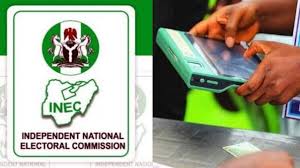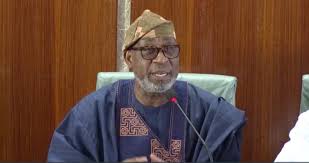One major issue Nigeria’s pro-democracy community has been grappling with is the impact of fake news, misinformation and disinformation. With several experiences showing that disinformation poses significant threat to the credibility of the electoral process, and the overall stability of society, civic agencies have been working assiduously to ensure citizens are aware and prepared to mitigate the threats posed by misinformation.

As such, the post election debrief on disinformation convened by the Centre for Democracy and Development (CDD) in Lokoja, the Kogi State capital recently provided a veritable platform for journalists, bloggers, political parties, security agencies and other interest groups to look back at the November 16 election and reflect on how disinformation contributed to undermining the credibility of the process. The stakeholders at the debrief were called upon to use their energies, skills and networks to ensure fake news, misinformation and disinformation are squarely combated.
CDD Senior Program Officer, Mr. Austin Aigbe while sharing the think tank’s findings on fake news tracked and fact-checked during the November 16 2019 Kogi governorship election, told the audience that many of the fake news created and spread during the polls were capable of inciting violence, if not fact checked and debunked. He said the Election Analysis Centre was set up on the 14 November 2019; and it received guests and held some briefings. The Senior Program Officer said while some of the fake news sought to undermine the credibility of INEC, other content designed to misinform the public tried to play on the ethnic identities and sentiments of the various demographics in the election.

He said: “We observed that the spread of disinformation around emotive issues such as party preferences and violence got significant traction on social media. CDD also found that people are more susceptible to believe this because of the high levels of confirmation bias. The fake news came in the form of old pictures, unsupported or false claims on social media, misleading or fake headlines, but no audio message was recorded.”
He informed that some of the fake news spotted targeted party candidates; some were false alarms, nonetheless the fake news generally had political undertones meant to sway the choice of voters. Aigbe similarly stressed that the security agencies had a huge role to play in mitigating the threats posed by misinformation by being proactive, and by using social media to share updates, which could help debunk false information circulating, especially those relating to violence.
On his part, Independent National Electoral Commissioner (INEC) Resident Electoral Commissioner in the state, Professor James Apam informed that the Elections Management Body (EMB) was taking a number of steps to stop the spread of fake news. These steps include the pasting reports about issues before, during and after the elections on its website. The INEC REC said the proactive disclosure of information has helped combat the spread of fake news. The REC also informed that the Commission has been holding regular meetings with stakeholders to provide them with updates, thereby ensuring they are informed of key developments in the electoral process.
A number of media practitioners at the post-election debrief emphasized the key role of the media in combating fake news, misinformation and disinformation. This position was similarly echoed by the representative of the Nigeria Union of Journalists (NUJ) who noted that peddlers of fake news are either not media professionals or acquainted with the ethics of the ethics of journalism. He called on every journalist to remain true to the ethics of the profession by ensuring all information to be put out is verified from reliable sources before release to the public.






















